Global DPI Summit 2025 – Session on Cities Reimagined: DPI as the Engine of Urban Progress
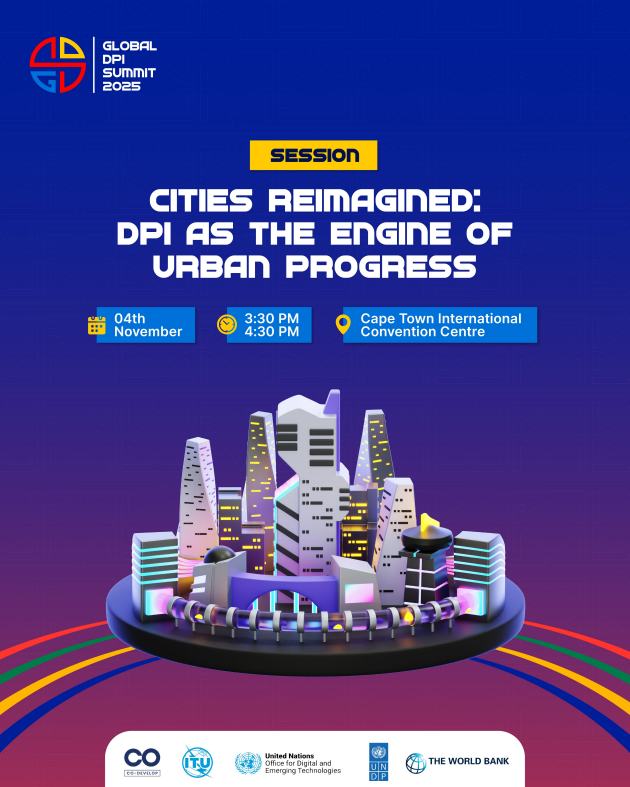
Description
As cities evolve into dynamic, digitally connected ecosystems, Digital Public Infrastructure (DPI)—spanning digital identity, payments, data exchange, and connectivity—has emerged as a transformative force for delivering inclusive, efficient, and people-centred urban services.
This session explored how DPI is reimagining urban life, enabling cities to become smarter, more resilient, and more responsive to the needs of their communities. By driving innovation, enhancing urban governance, and bridging digital divides, DPI ensures that no one is left behind in the digital age.
Drawing on real-world examples from the United for Smart Sustainable Cities (U4SSC) initiative and other global efforts, participants gained insights into how DPI is reshaping public services, strengthening citizen engagement, and unlocking new opportunities for inclusive economic and social development.
General Information:
Contact:
Cristina Bueti (ITU)
Programme
15:30 – 15:40 Opening Remarks
- H.E. Mr. Solly Malatsi, Minister, Department of Communications and Digital Technologies (DCDT), South Africa
- Tomas Lamanauskas, Deputy Secretary-General, ITU
15:40 – 15:50 Keynote presentation
- Venkatesen Mauree, Head, Strategic Technology and Academia Initiatives Division, ITU [Presentation]
15:50 – 16:28 Session on Digital public infrastructure in action: Building cities that work for everyone
Moderator: Halima Letamo, Area Representative for Southern Africa, ITU
Speakers:
- Nonkqubela Thathakahle Jordan-Dyani, Director-General, Department of Communications and Digital Technologies, South Africa
- Varun Basu, Vice President for Growth and Partnerships, eGov, India
- Daniela Duque, Manager, VélezReyes+, Colombia
- Manuel Aguilera, Centre for Digital Public Infrastructure (CDPI), Colombia
- Hugh Cole, Director of Policy and Strategy and Chief Data Officer, City of Cape Town Government, South Africa
Questions and answers
16:28 – 16:30 Closing Remarks
- Alex Wong, Senior Advisor, Strategic Engagement and Initiatives, ITU
Biographies

Daniela Duque
Manager, VélezReyes+, Colombia
Daniela Duque is Innovation in State Capacity Manager at VélezReyes+, a philanthropic platform from and for Latin America that advances democracy and education as vehicles to reduce gaps in opportunity. With over a decade of experience across the social, public, and private sectors, she works at the intersection of technology, democracy, and impact, helping institutions and communities harness innovation for equitable development.
At VélezReyes+, she leads efforts to explore how Digital Public Infrastructure (DPI) can strengthen state capacity and improve public delivery. Through DPIxLocal, a partnership with Co-Develop and CDPI, the initiative seeks to test how city- and sector-level DPI can enhance government performance and citizen trust – from authentication pilots in Medellín, Colombia, to education efforts in Recife, Brazil.
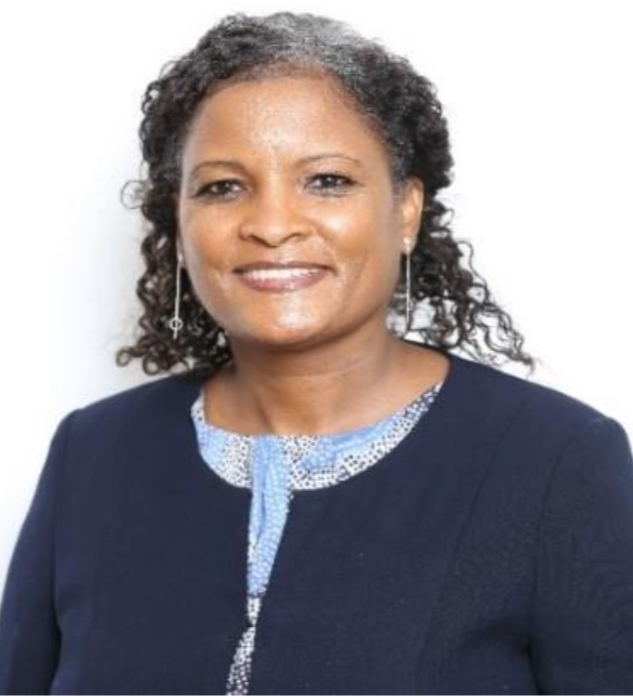
Halima Letamo
ITU Area Representative for Southern Africa
Ms Halima Letamo heads the ITU area office for Southern Africa. She is a seasoned ICT professional with over 25 years work experience. In her role, Ms Letamo provides strategic direction to the work of the ITU in the region, focusing on supporting member states with acceleration of digital transformation, rollout of broadband infrastructure and connectivity, digital safety and security as well as emerging technology and innovations ecosystems. This role includes close collaboration with other UN Agencies, overseeing execution of ITU’s mandate within the broader UN programmatic deliverables in the region. Prior to this role, Ms Letamo managed global initiatives aimed at the implementation of the ITU capacity development portfolio, focusing on skills development of ICT professionals, institutional capacity development for ITU Member States and basic digital skills development for underserved communities. She has facilitated the World Summit on the Information Society Action line C4 driving global policy dialogue and capacity development in topics such as AI, e-Applications, e- health, e-agriculture, e-learning, ICT policy and regulation, spectrum management and emergency telecommunications among others. Ms Letamo has also worked for UNESCO and Botswana Government in various capacities. She has experience in the implementation of resource mobilisation strategies, project management for development organisations, strategic management and has served in executive boards of global organisations such as the Commonwealth Telecommunications Organisation. She holds a bachelor’s degree in Demography and Environmental Science, covering Remote Sensing and Geographical Information Systems, Masters degree in Education, a Masters degree in Business Administration as well as several professional certifications.
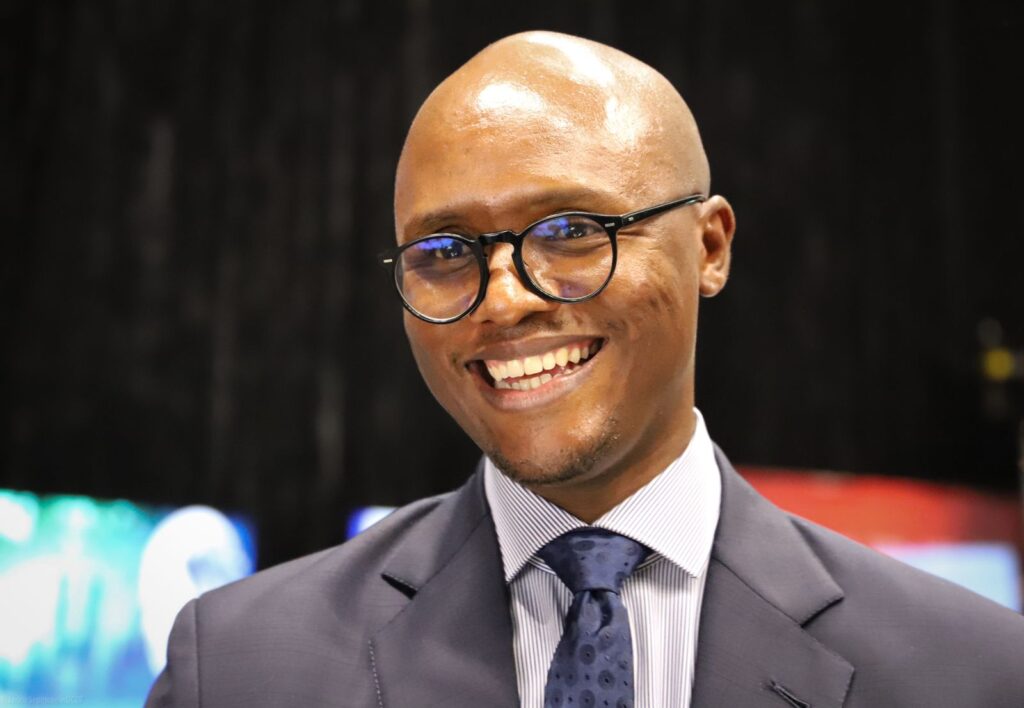
H.E. Mr. Solly Malatsi
Minister of Communications and Digital Technologies
Solly Malatsi is the current South African Minister of Communications and Digital Technologies, a
position that highlights his extensive leadership and strategic expertise.
With a background as a seasoned communications specialist, he has served in various high-profile
government roles, including as the Parliamentary Counselor to the Leader of the Official Opposition.
Minister Malatsi’s career in public service is marked by his exceptional ability to guide and implement
communication strategies across multiple government levels, ensuring effective message delivery and
organizational cohesion.
His leadership extends to his tenure as a Member of Parliament, where he has contributed to portfolios
such as Sports and Recreation, Human Settlements, and Communications and Digital Technologies.
Notably, he completed a full term as a whip for the parliamentary caucus, demonstrating his leadership
in managing party discipline and legislative processes. His previous roles also include serving as the
spokesperson for the Western Cape MEC of Transport and Public Works, as well as for the Mayor of
Cape Town, reflecting his versatility and ability to communicate across diverse political contexts.
Prior to his appointment as Minister, Malatsi was the national spokesperson for the Democratic Alliance
(DA), where his skills in public communication were pivotal in shaping the party’s public image and
outreach.
He continues to hold key leadership positions within the DA, including serving as Provincial Deputy
Chairperson in Limpopo and as the elected Deputy Federal Chairperson since 2023.
Minister Malatsi’s educational background includes a Bachelor of Administration from the University of
Limpopo and an Honours Degree in Political Studies from the University of the Witwatersrand. His
academic credentials complement his leadership roles, underlining his commitment to both governance
and policy-making at the highest levels of government.
With a career defined by strong leadership, strategic communication, and a deep understanding of
digital technologies, Solly Malatsi remains a key figure in shaping South Africa’s future in the digital
age.
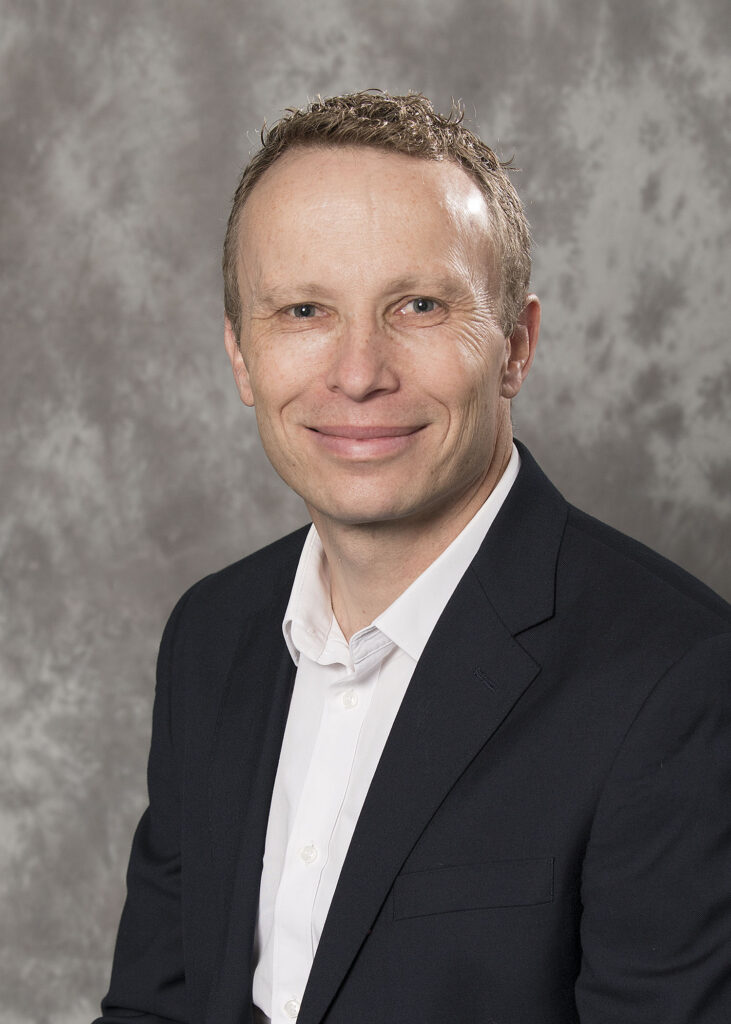
Hugh Cole
Chief Data Officer and Strategy Director for the City of Cape Town
Hugh Cole leads the City’s Data Strategy and Data Analytics Hub and co-leads the integration of artificial intelligence into planning and service delivery. Over the past seven years, he has built a multidisciplinary team spanning policy, strategy, economics, infrastructure, and data capabilities — helping position Cape Town as a leader in evidence-based urban governance in Africa. His work has produced the City’s first consolidated ten-year infrastructure portfolio and award-winning data analytics programmes. Before joining the City, he directed country programmes at the International Growth Centre (LSE and Oxford). He is a Visiting Senior Fellow at the London School of Economics’ School of Public Policy.

Manuel Aguilera
Regional Lead, Latin America and the Caribbean, Centre for Digital Public Infrastructure
Manuel Aguilera is the Latin America and the Caribbean Lead at the Centre for Digital Public Infrastructure (CDPI), where he supports governments across the region in the design and implementation of DPI.
Before joining CDPI, he co-founded Impacto Digital, a civic tech organization working across Latin America to protect human rights. He has also served as a consultant for organizations such as UNESCO and the Inter-American Commission on Human Rights. Manuel holds a degree in Sociology and a Master’s in Public Administration from University College London.
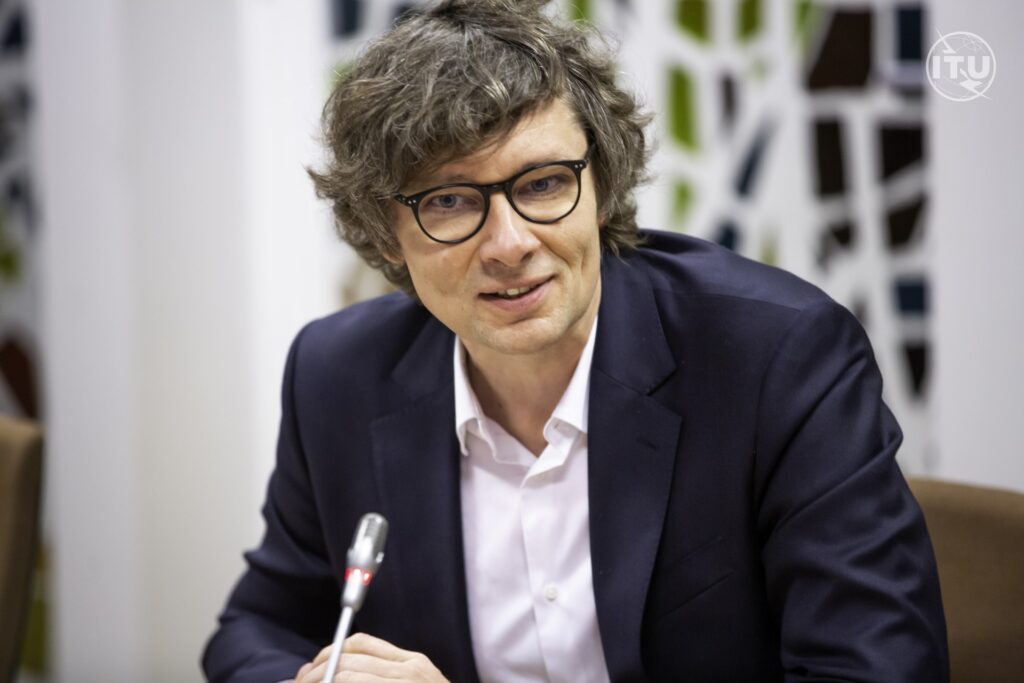
Tomas Lamanauskas
Deputy Secretary-General, ITU
Tomas Lamanauskas is Deputy Secretary-General of the International
Telecommunication Union, elected at the ITU Plenipotentiary Conference of 2022, and in
office since January 2023.
He has over 25 years of experience in telecommunications and digital policy, regulation,
and strategy, holding executive-level positions in agencies, companies, and
organizations across Europe, the Middle East, the Caribbean, and the Pacific.
As Deputy Secretary-General, Tomas focuses on ITU’s financial sustainability and
operational excellence. He also promotes investments into digital infrastructure and
resilience through the Digital Infrastructure Investment Initiative and International
Advisory Body on Submarine Cable Resilience, and leads efforts to raise the digital
industry’s ambition in fighting the climate crisis through the Green Digital Action
initiative. Additionally, Tomas contributes to the global efforts to harness the
opportunities and mitigate challenges of new technologies, in particular Artificial
Intelligence, serving as a co-chair of the United Nations Inter-Agency Working Group
on AI. Furthermore, he serves as Chair of the Management Committee of the United
Nations International Computing Centre (UNICC) – a key shared platform for the
delivery of infrastructure and services across the UN system. Tomas is also playing a key
role in ensuring ITU’s support to other UN-wide development and governance efforts,
including through the World Summit of the Information Society process and
membership at the Operational Steering Committee of the UN Joint SDG Fund.
Tomas holds Master’s degrees in Public Administration (Harvard), Leadership and
Strategy (London Business School), Telecommunications Regulation and Policy (The
University of the West Indies), and Law (Vilnius University)
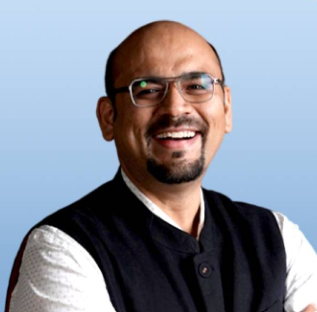
Varun Basu
Vice President for Growth and Partnerships, eGov
Varun Basu is a partnerships and growth leader with over two decades of experience building technology ecosystems and scaling open-source Digital Public Infrastructure (DPIs) across Asia and Africa. At present, he leads global initiatives that bring together market, government, and civil society partners to co-create and scale Digital Public Goods (DPGs) that strengthen governance, health, and social protection systems. His work focuses on translating open technology into population-scale impact through collaboration, interoperability, and innovation. Varun also mentors Ashoka Fellows and social entrepreneurs on leveraging open-source platforms to drive sustainable and inclusive digital transformation.
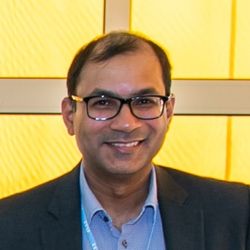
Venkatesen Mauree
Head, Strategic Technology and Academia Initiatives Division, Standardization Bureau, ITU
Venkatesen Mauree is the Head of the Strategic Tech and Academia Initiatives Division, Standardization Bureau at the International Telecommunication Union (ITU). He joined the ITU in 2010 and has over 30 years of experience in project management and cybersecurity. He coordinates the work for the AI and Multimedia Authenticity Standards Collaboration and the AI Standards Exchange Database under the World Standards Cooperation.
He leads the ITU Digital Financial Services Security Lab which conducts security audits on mobile payment applications used in emerging economies and provides technical assistance to telecom regulators in emerging economies to enhance security of digital finance and adoption of international standards and best practices for security of digital financial inclusion and fintech.
He supervises the Academia activities such as the Kaleidoscope academic conference and the publication of the ITU Journal. He manages the collaboration with OpenWallet Foundation for the OpenWallet Forum project which aims at global interoperability for digital wallets and credentials. He assists the OpenWallet Forum Government Consultative Committee in its work on government policies for digital wallets.
He coordinated the work of several Focus Groups namely, the ITU-T Focus Group Digital Financial Services (2014-16), the ITU-T Focus Group Digital Currency including Digital Fiat Currency (2017-19) and the ITU-T Focus Group on Cost Models for affordable data services (2023-25).
He led the work of digital financial services security under the Financial Inclusion Global Initiative (FIGI) project from 2017 to 2021. FIGI was a joint programme of the ITU, World Bank, Bank for International Settlements and supported by the Bill & Melinda Gates Foundation. He led the FIGI Security, Infrastructure and Trust Working Group which investigated the security threats to the DFS Ecosystem and developing technical reports and guidelines to enhance trust in DFS. The ITU DFS Security Lab was established as an outcome of the work under FIGI.